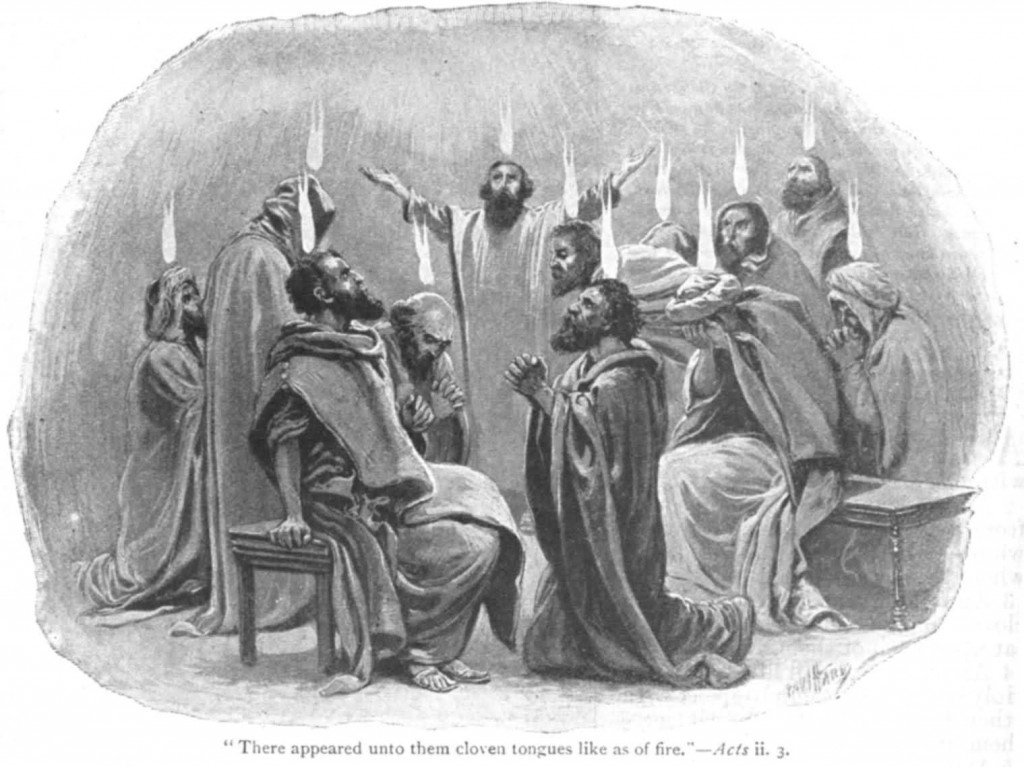Tongues and Other Miraculous Gifts in the Second Through Nineteenth Centuries, Part 2: 3rd to the 5th Centuries

Richard M. Riss presents evidence for the operation of the gifts of the Spirit throughout the Church Age.
Origen
In any case, Origen, Clement’s successor as head of the catechetical school in Alexandria, makes explicit references to miraculous gifts in operation in his day, at the beginning of the third century. He wrote, “there are still preserved among Christians traces of that Holy Spirit which appeared in the form of a dove. They expel evil spirits, and perform many cures, and foresee certain events, according to the will of the Logos.”24 Elsewhere, he wrote:
Moreover, the Holy Spirit gave signs of His presence at the beginning of Christ’s ministry, and after His Ascension He gave still more: but since that time these signs have diminished, although there are still traces of His presence in a few who have had their souls purified by by the gospel, and their actions regulated by its influence.25
A much more extensive treatment of the gifts of the Spirit appears in Origen’s De Principiis, book II, chapter VII, which is entitled, “On The Holy Spirit”. The third portion of this part of Origen’s work appears to be a very loose paraphrase of 1 Corinthians 12: 8-11, where he writes:
For on some is bestowed by the Spirit the word of wisdom, on others the word of knowledge, on others faith; and so to each individual of those who are capable of receiving Him, is the Spirit Himself made to be that quality, or understood to be that which is needed by the individual who has deserved to participate.26
The following paragraph (section 4) of the same chapter provides unquestionable evidence that he is speaking of the spiritual gifts with reference to the time in which he was living, for he writes:
We must therefore know that the Paraclete is the holy Spirit, who teaches truths which cannot be uttered in words, and which are, so to speak, unutterable, and “which it is not lawful for a man to utter,” i.e., which cannot be indicated by human language…..For if any one has deserved to participate in the Holy Spirit by the knowledge of His ineffable mysteries, he undoubtedly obtains comfort and joy of heart. For since he comes by the teaching of the Spirit to the knowledge of the reasons of all things which happens—how or why they occur—his soul can in no respect be troubled, or admit any feeling of sorrow; nor is he alarmed by anything, since, clinging to the Word of God and His wisdom, he through the Holy Spirit calls Jesus Lord.27
There can be no question that Origen is speaking of revelatory spiritual gifts, for he writes very explicitly in this passage of revelation by God’s Spirit. His reference to unutterable truths which cannot be indicated by human language seems to suggest the possibility of a heavenly language in which such things can be uttered through the gift of tongues. Such an interpretation would certainly be consistent with the continual association of the gift of tongues with other prophetic gifts throughout the Patristic era.
Category: Church History, Winter 1999


